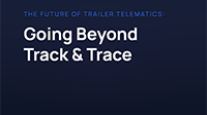iTECH: Load Board Scams Bilk Fleets
This article appears in the Aug./Sept. 2011 issue of iTECH, published in the June 13 print edition of Transport Topics. Click here to subscribe today.
Truckers and freight brokers who use freight-matching Internet load boards would do well to remember that in cyberspace, things are not always as they appear. Just ask Frank Butler, a senior vice president at Churchill Transport, a Detroit-based dry van freight hauler and logistics provider.
In November 2008, Churchill fell victim to a seemingly simple, but crafty, double-brokering load board fraud scheme that, in the end, left dozens of truckers and brokers holding a collective $1 million tab.
Churchill brokered a freight load on a Thursday from East Syracuse, N.Y., to Laredo, Texas, but the scammers, posing as a motor carrier, double-brokered the load without Churchill’s knowledge.
“Come Monday morning, everyone was looking for the freight, and things just started escalating from there,” Butler recalled. “We eventually did get the freight moved after we got in touch with the carrier who was actually moving it. We had to pay that carrier.”
Churchill’s total loss: $3,700, which included an advance to the scammers.
Although it took federal law enforcement a few years to catch up with the architects of the Churchill fraud, the crooks, a father and two of his sons, were sentenced in March to a maximum of five years in federal prison. The three also were ordered to pay $1.1 million in restitution for defrauding an estimated 165 individuals and companies.
But as is the case in most freight load board scams, Churchill never recovered a cent of what it lost.
The most common scam seems pretty simple and doesn’t really require technological savvy. A would-be crook goes to the Federal Motor Carrier Safety Administration’s registration website, downloads an application form, plugs in the name, address and cellphone number of a fictitious broker or motor carrier, lists fake corporate officers, swears to obey all the trucking laws and regulations, and plunks down a credit card for a $300 fee. Brokers also must file either a $10,000 surety bond or trust fund agreement with the agency.
Federal law requires that motor carriers get an FMCSA safety audit within 18 months after authority is granted, which in effect gives the scammers 18 months’ worth of wiggle room to pull off a few jobs.
After receiving a Department of Transportation number and interstate operating authority, the scammer sets up a computer
fax machine and prepaid cellphone and heads for the Internet freight-matching load boards in search of unsuspecting motor carriers who never will get paid for their time and hard work.
It’s a vicious cycle, said Sonny Smith, an executive with the assurance department of freight-matching load board InternetTruckstop.com.
“Brokers and motor carriers can continually morph,” said Smith, who has been chasing bad guys for 30 years. “They put up a $10,000 bond [and] move as many loads as they can, having absolutely no intention of ever paying a carrier.
“They pocket all the money from the loads, moving upwards of $300,000, or maybe even a half-million dollars,” Smith said. “Then they’ll go sip on umbrella drinks on some tropical island until they start to run low on cash.”
At that point, he said, they return to the United States and apply for operating authority again, but using a different name and perhaps listing a daughter, sister, brother-in-law or dead grandma as the company’s president.
With the average freight load totaling only about $1,200 in value, in most cases, it probably would cost more than the amount of the loss to hire a lawyer and seek damages. Plus, most prosecutors consider the typical load board fraud loss to be small potatoes. Plus, most scammers are nowhere to be found once they’ve collected their ill-gotten gains.
The good news is that law enforcement in recent years has caught up with several of the larger load board fraud rings, and Internet freight-matching load board security investigators are working hard to stay ahead of the scammers.
“I have six people working on security now,” said Doug Moscrip, co-owner of InternetTruckstop.com, New Plymouth, Idaho. “We have specialists that are skilled in doing very minute searches.”
For the most part, security experts said the only way to beat a fraud is for a carrier or broker to perform thorough due diligence on their business partners — or, for a relatively modest price, subscribe to a service that employs sophisticated software and even uses old-fashioned gumshoe techniques to keep the bad guys off their load boards in the first place.
“I think the trend within the trucking industry is that brokers and carriers alike are learning that doing business on a handshake, like we did in the ’70s, ’80s and even a good portion of the ’90s, is a thing of the past,” Smith said. “There are a lot of people out there that have come up with different ways to rip people off [and] create fraud within the industry.”
Butler said Churchill learned a tough lesson when it fell victim to fraud.
“We’ve really parsed down our brokerage carriers to people that we know,” Butler said. “Since that time, we’ve really been working to make sure that we know who everybody is that we are doing business with. We scrutinize the paperwork they send in. We require phone numbers from the driver that’s going to [the] pickup, and we make sure we have a legitimate certificate of insurance. If we have a bad feeling on somebody, we will call their references.”
Laura Mendoza is director of customer service for TransCore Load Boards and Services, Beaverton, Ore., which posts 60 million loads a year on its DAT.connect.com load board. She said TransCore attempts to “connect the dots” with its clients by routinely checking a carrier’s or broker’s operating authority with FMCSA and its standing with the company’s home state corporation commission or secretary of state, and by running a credit check during prequalification.
The company also matches names and phone numbers, verifies phone numbers with caller ID and checks addresses against Google mapping data, said Michele Greene, TransCore’s group product manager.
“We have a system sophisticated enough to keep track of all of what we call chameleons — people who try to come back, not so much with a different identity but trying to skirt around the system.”
TransCore and other load board operators won’t detail the technologies they use to keep their sites secure.
“As soon as you declare how you keep the crooks out, they know how you’re keeping them out,” Mendoza said. “They are pretty smart characters. They’re always going to try to figure out a way. It’s hard to stay ahead of them.”
Brokers and carriers become more vulnerable when they attempt to move their freight in a hurry, she added.
“That time when they might miss a step in the validation process is when they’re going to get caught,” Mendoza said. “They needed to move the freight fast, they were cutting corners, and the information was there for them to check out, but they didn’t quite find the time.”
Although sophisticated databases and systems are used, the people who interpret the broker and carrier background information and check for patterns of behavior make it successful, TransCore said. From a load board perspective, TransCore cautions anyone from using a load board service that permits online registration without validating DOT authority and other relevant business references.
Load board security officials also caution companies to be careful about the information they turn over to brokers or carriers with whom they don’t normally do business. That’s because company documents allow some scammers to obtain and use detailed information on a carrier’s or broker’s authority, said Tom McCorry, president of carrier411.com, Norcross, Ga., a Web-based service that tracks 626,000 motor carriers, brokers and freight forwarders registered with FMCSA.
McCorry said someone “could contact a carrier and say, ‘Hey, I’ve got a load for you; you interested in taking it? I need a copy of your authority, and I need a copy of your insurance and W-9.’ After [they] get those copies, what’s to stop someone from going out to a load board and calling up a load?”
Shippers should obtain and verify insurance and bond information, said David Wonnenberg, a spokesman for the U.S. Department of Transportation’s inspector general.
“Past investigations have taught us that criminals initially make a small insurance/bond payment but fail to maintain the insurance,” Wonnenberg said. “Once the criminals receive the initial documents, they continue to supply the insurance/bond documents, knowing that they failed to make payments to maintain the insurance/bond.”
Ultimately, the insurance company revokes the insurance. When victims realize that their load has been stolen or not delivered, they attempt to make claims against the insurance/bond holder. At that point, without an active insurance/bond, the victim’s claims are denied and the losses cannot be recovered.
The agency is “more actively initializing criminal investigations into this area,” Wonnenberg said, and U.S. Attorneys’ offices are accepting the cases for prosecution.
FMCSA said that its primary mission is safety, but it wants to do its part to head off fraud in the transportation industry. For example, agency spokesman Duane DeBruyne said, every application is reviewed and FMCSA is “committed to continual improvement in every aspect of the agency’s operations and duties.”
“There are layers of scrutiny,” DeBruyne said. “In addition, the New Entrant program and the Compliance Safety Accountability program each provide their own thorough, specialized reviews.”
Load board security officials acknowledged that FMCSA plugged one nagging problem that allowed scammers to commit “unlawful intrusions” onto the agency’s Internet Safety and Fitness Electronic Records System, also called SAFER, by using carrier and broker personal identification numbers to gain entry and change a legitimate operator’s address and phone number to their own cellphone numbers or addresses.
However, in the long run, InternetTruckstop’s Moscrip said, there is a better way for the agency to help — one that would require congressional authorization.
“The problem isn’t the load board,” Moscrip said. “The problem is identifying the people that use the load board. The federal laws are so loose that these people can operate with fictitious names, fictitious companies and fictitious addresses.”
Moscrip said he learned at a recent factoring conference that 11,000 different professions require licenses.
“Trucking isn’t one of those,” he said.
His solution: Require a trucker or broker to be fingerprinted and submit a photo.
“I think the identification and licensing issue would cut fraud 90%,” Moscrip said. “I could probably lay off two-thirds of my security department, and everybody would sleep better at night.”




